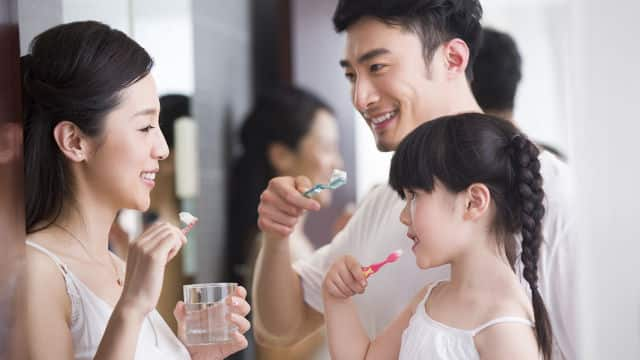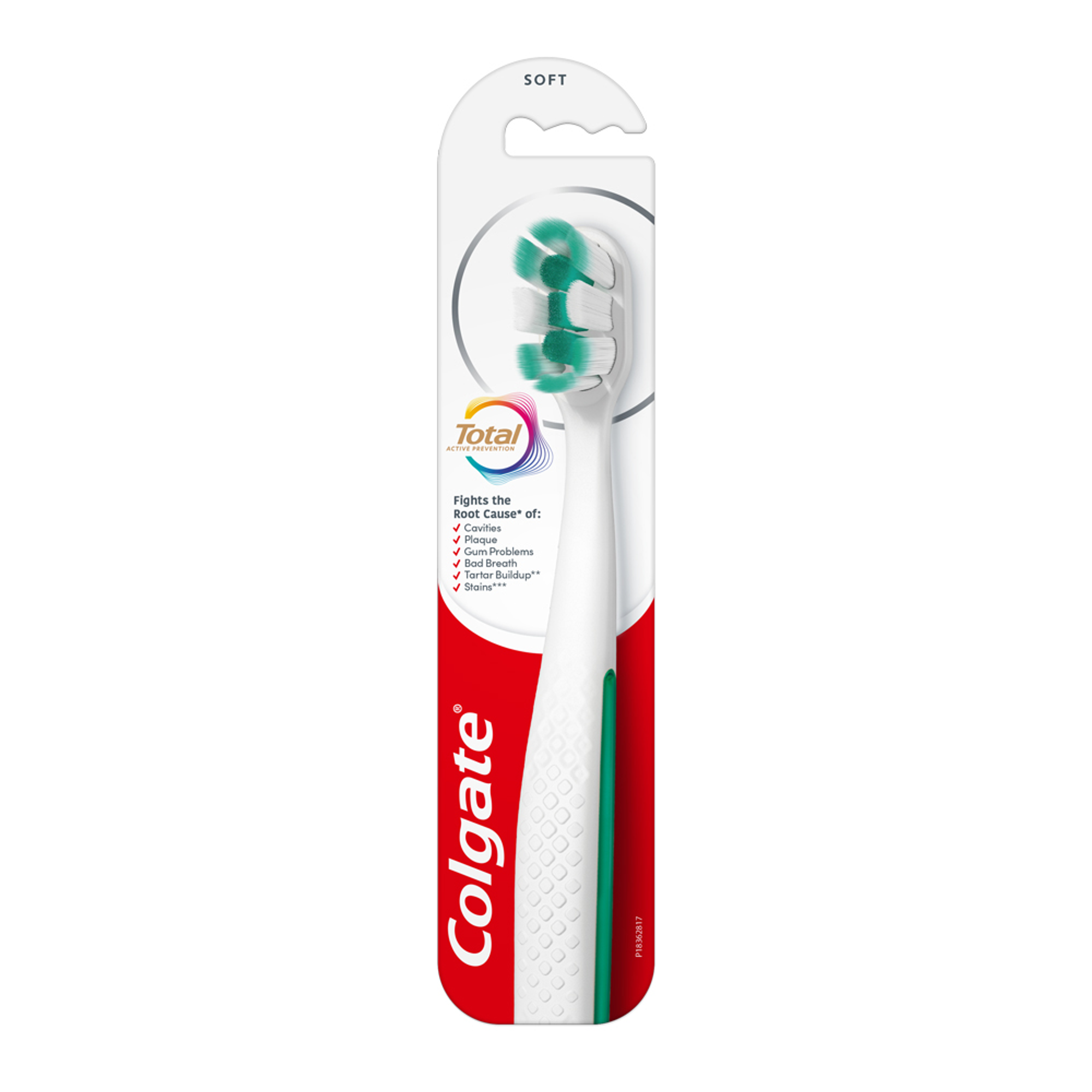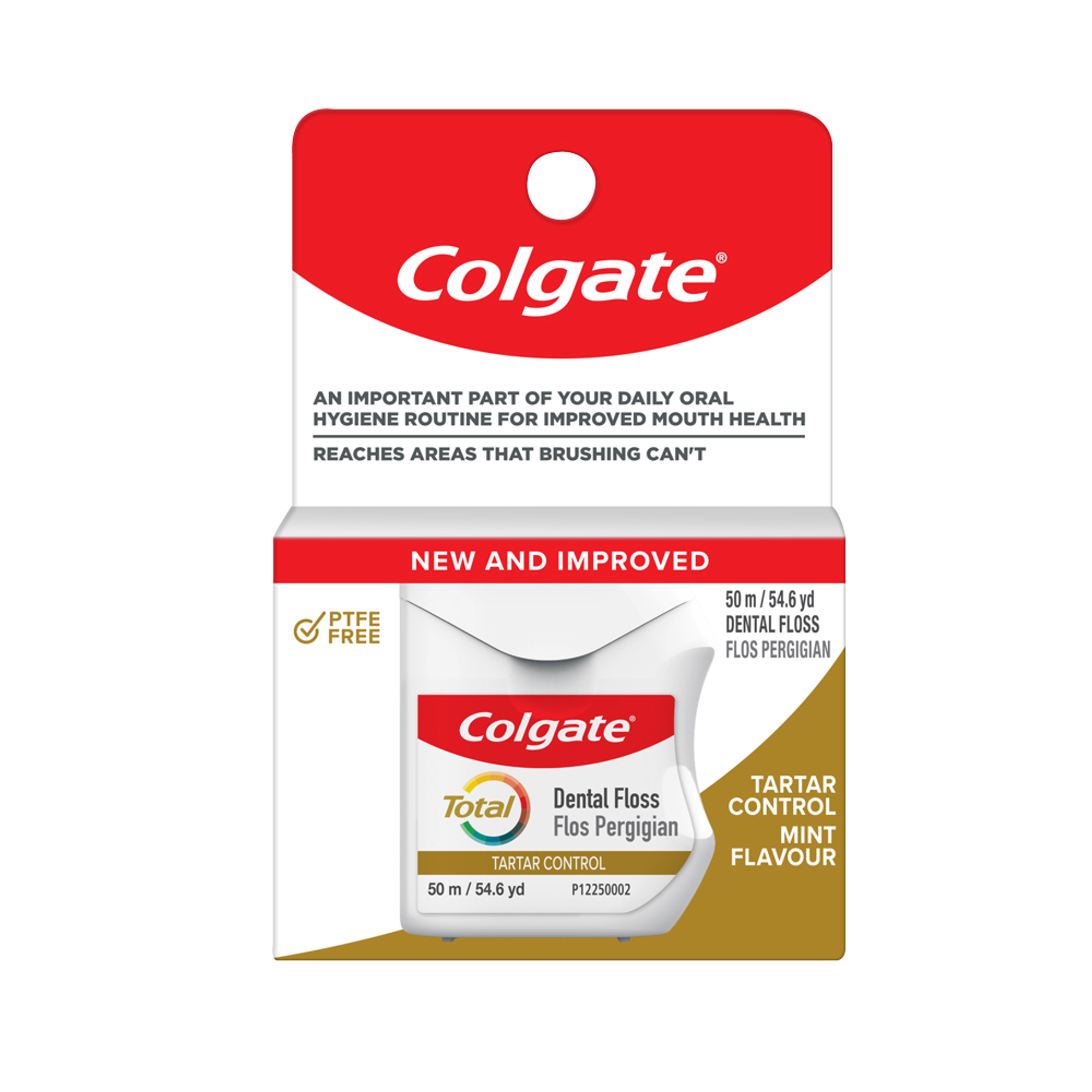The good news is that learning about the causes and symptoms of swollen gums can help you find the right swollen gums remedy and prevent future problems. Continue on to understand what causes swollen gums, how to treat them at home or with a dentist, and how to keep your gums healthy.
What Are Swollen Gums?
Swollen gums, also called gum swelling, happen when the gum tissue around your teeth becomes puffy, red, or sore. Healthy gums should be firm and light pink, but when they swell, they may look darker, feel tender, and even bleed when you brush or floss. You might be thinking, ‘Why are my gums swollen’? There are many possible reasons, such as plaque buildup, infections, or food stuck between your teeth.
It can affect a small area of the gums or spread across the entire mouth. In some cases, swollen gums can also cause discomfort, bad breath, or sensitivity to hot and cold food. While mild swelling may go away on its own with proper oral care, knowing how to relieve gum swelling is important. Persistent gum swelling should not be ignored as it could indicate a more serious problem like gingivitis or periodontitis, requiring professional treatment.
Common Causes of Swollen Gums
Swollen gums can happen for many reasons, and dental plaque, or biofilm, is a major factor. While some causes of gum swelling are minor and can be treated at home, others may need proper attention from a dental professional. Here are some of the most common causes of swollen gums:
Poor Oral Hygiene: Not brushing and flossing properly can cause plaque buildup on your teeth and gums. Plaque may irritate gums, leading to swelling, redness, and bleeding. If left untreated, it can later harden into tartar, increasing the risk of gum disease. Brushing twice a day, flossing daily, and visiting the dentist regularly are important.
Food Stuck Between Teeth: Tiny food particles like meat fibres can get trapped between your teeth and gums. This can cause irritation, swelling, and even infection if not removed. Flossing and rinsing with water after meals can help prevent this problem.
Hormonal Changes: Pregnancy, puberty, and menopause can cause changes in hormone levels. This, in turn, can make gums more sensitive and cause them to swell, become tender, and bleed more easily. Good oral hygiene and regular dental visits can help manage these changes.
Irritation from Dental Products: Some toothpaste, mouthwashes, or whitening treatments contain strong ingredients. Using those products may irritate the gums and can cause swelling, redness, and discomfort. If you notice irritation after using a new product, switching to a gentler, alcohol-free option may help.
Smoking: Smoking and using tobacco products can weaken your immune system. This may make it harder for your gums to fight infections. Smokers are more likely to develop gum disease, which can cause swelling, bleeding, and even gum recession. Quitting smoking can improve gum health and reduce the risk of serious dental problems.
Medications: Certain medications can cause gum swelling as a side effect. Some medications reduce saliva production, leading to dry mouth and an increased risk of gum problems. If you think a medication is affecting your gums, talk to your doctor or dentist about possible alternatives.
Poor Nutrition: Not getting enough essential vitamins and minerals can weaken the gums and make them more likely to swell. Vitamin C is especially important for gum health because it helps the body repair and maintain gum tissue. Eating a balanced diet rich in fruits, vegetables, and whole grains can help keep your gums strong.
Fitted Dental Appliances: Braces, dentures, retainers, or poorly fitted dental crowns can cause irritation and swelling if they rub against the gums. In some cases, they may also trap food and bacteria, leading to further gum problems. If your dental appliance is causing discomfort, visit your dentist to have it adjusted.
Periodontal Disease: Gingivitis (early gum disease) may cause redness, swelling, and bleeding. If untreated, it can progress to periodontitis, a serious infection that damages gums and bones. The major symptoms include receding gums, loose teeth, and bad breath. Regular dental check-ups and good oral hygiene can help prevent gum disease.
Major Symptoms of Swollen Gums
Swollen gums can be a sign of an underlying oral health issue. The symptoms can range from mild discomfort to severe pain and may worsen if left untreated. Here are the key signs of swollen gums to watch for:
Redness and Inflammation: Healthy gums are often pink and firm. However, swollen gums usually appear red, puffy, and irritated.
Tenderness and Pain: Your gums may feel sore, especially when eating, drinking, or brushing. The pain can range from mild discomfort to a throbbing sensation, depending on the severity.
Bleeding Gums: Gums may bleed when brushing or flossing. Frequent bleeding could be a sign of gum disease.
Bad Breath (Halitosis): Swollen gums can trap bacteria, leading to persistent bad breath. A bad taste in the mouth may also be noticeable.
Receding Gums: It is noticed that the gums may start pulling away from the teeth. This can make teeth look longer and increase sensitivity.
Increased Sensitivity: Swollen gums may cause teeth to feel more sensitive to hot, cold, or sweet food. Sensitivity can be a sign of gum recession or enamel erosion.
What to Do About Gum Swelling? Treatment Options
Taking the right steps early on can help relieve the discomfort and pain caused by gum swelling. Getting the right treatment can also prevent the condition from worsening. The best treatment depends on the cause and severity of the swelling. If you are wondering how to treat swollen gums, here are some effective methods.
Professional Dental Care
If your swollen gums do not improve with home care, it is important to seek professional dental treatment. A dentist or periodontist (gum specialist) can determine the cause and recommend the best medicine for swollen gums or procedures. Here are a few common professional methods:
Deep Cleaning (Scaling and Root Planing): This involves a professional cleaning that removes plaque and tartar buildup below the gumline. It also helps prevent gum disease from progressing.
Antibiotic Treatment: If an infection is present, your dentist may prescribe antibiotics. These can be in the form of oral medication, gels, or mouth rinses.
Laser Treatment: A minimally invasive procedure that removes infected gum tissue. It promotes healing and helps reattach healthy gums to the teeth.
Root Canal Therapy or Tooth Extraction: If swelling is due to a dental abscess (infection in the tooth), a root canal may be necessary. In severe cases, the affected tooth may need to be removed.
However, if your swollen gums are not caused by gum disease, your healthcare professional may run tests to check for infections, diabetes, or vitamin deficiencies. Once they find the cause, they will suggest the right treatment to fix the problem. Visiting a dentist as soon as you notice persistent gum inflammation or swelling can help prevent serious issues and keep your mouth healthy.
At-Home Treatment
If you are wondering how to heal a swollen gum, there are simple steps you can take at home to reduce discomfort and promote healing. For those looking for how to cure swollen gums at home fast, these remedies may offer temporary relief. However, a dental professional should be consulted if symptoms persist.
Brush and Floss Daily: Brush twice daily with a soft-bristled toothbrush to clean your teeth gently. Floss daily to remove food particles and plaque that may irritate your gums.
Salt Water Rinse: Swishing salt water around your mouth may help reduce the presence of bacteria and soothe your gums. Or you may also use a mouthrinse for gum disease.
Cold Compress: Applying an ice pack is an effective way when thinking about how to reduce puffy gums. Place it outside your face near the swollen area to reduce swelling and pain.
How to Prevent Swollen Gums
You should care for your gums just as you care for your teeth. If you need help finding answers for how to prevent swollen gums, here are some simple and effective steps you can take.
Maintain good oral hygiene: Brush your teeth twice a day with a soft-bristled toothbrush and fluoride toothpaste. Floss daily to remove food particles and plaque from between your teeth.
Use an antibacterial mouthwash: Rinse with an alcohol-free antibacterial mouthwash. This can help kill bacteria, prevent bacterial infections, and reduce gum inflammation.
Eat a healthy, balanced diet: Get enough vitamin C and iron to keep your gums strong and prevent deficiencies that can lead to swelling. Avoid sugary and processed foods that can increase plaque buildup and irritate your gums.
Stay hydrated: Drink plenty of water to help wash away food debris and bacteria. Staying hydrated can also keep your saliva production steady, which helps protect your gums.
Avoid smoking and tobacco products: It can weaken your immune system, making it harder for your gums to fight off infections. Quitting smoking can significantly reduce your risk of gum disease and gum swelling.
Be gentle with your teeth and gums: Avoid brushing too hard, as it can damage your gum tissue and cause irritation. If you use dental appliances like braces or dentures, make sure they fit properly to prevent gum pain and irritation.
Visit your dentist regularly: Schedule dental check-ups every six months for professional cleanings and gum health assessments.
When to See a Dental Professional
If your swollen gums last more than two weeks, it is time to see a dental professional. A dental hygienist can help with deep cleaning, while advanced cases may require gum surgery. Early treatment in dentistry can prevent complications and keep your gums healthy. While mild swelling may improve with proper oral care, persistent or severe gum swelling should not be ignored. Seeking professional help can prevent serious complications like tooth decay, gum infection, and even tooth loss.
Swollen gums can be uncomfortable, but with proper care, they are manageable and preventable. Maintaining good oral hygiene, eating a healthy diet, and visiting your dentist regularly can help keep your gums healthy. If you are looking for how to relieve swollen gums, home remedies like saltwater rinses and cold compresses may provide temporary relief. However, if swelling persists, professional treatment may be necessary to prevent serious dental issues and protect your oral health. Taking early action can protect your oral health and keep your smile bright.
Frequently Asked Questions
Will swollen gums heal on its own?
Mildly swollen gums may go away with proper oral hygiene, like brushing, flossing, and saltwater rinses. However, if it lasts for more than two weeks, it could indicate a serious issue requiring professional dental care.
How do you get rid of swollen gums fast?
If you are thinking about how do you reduce gum swelling quickly, rinse with warm salt water, use a cold compress, and maintain good oral hygiene. If swelling persists, consult a dental professional for proper treatment.
How long does a swollen gum last?
The duration of gum pain depends on the cause. Minor irritation may heal in a few days, while gum disease or infection may take longer. If swelling lasts more than a week, seek dental care.
How to improve gum health quickly?
Brush and floss daily, use an antibacterial mouthwash and eat vitamin-rich food for stronger gums. Staying hydrated and avoiding smoking can also improve gum health fast.














